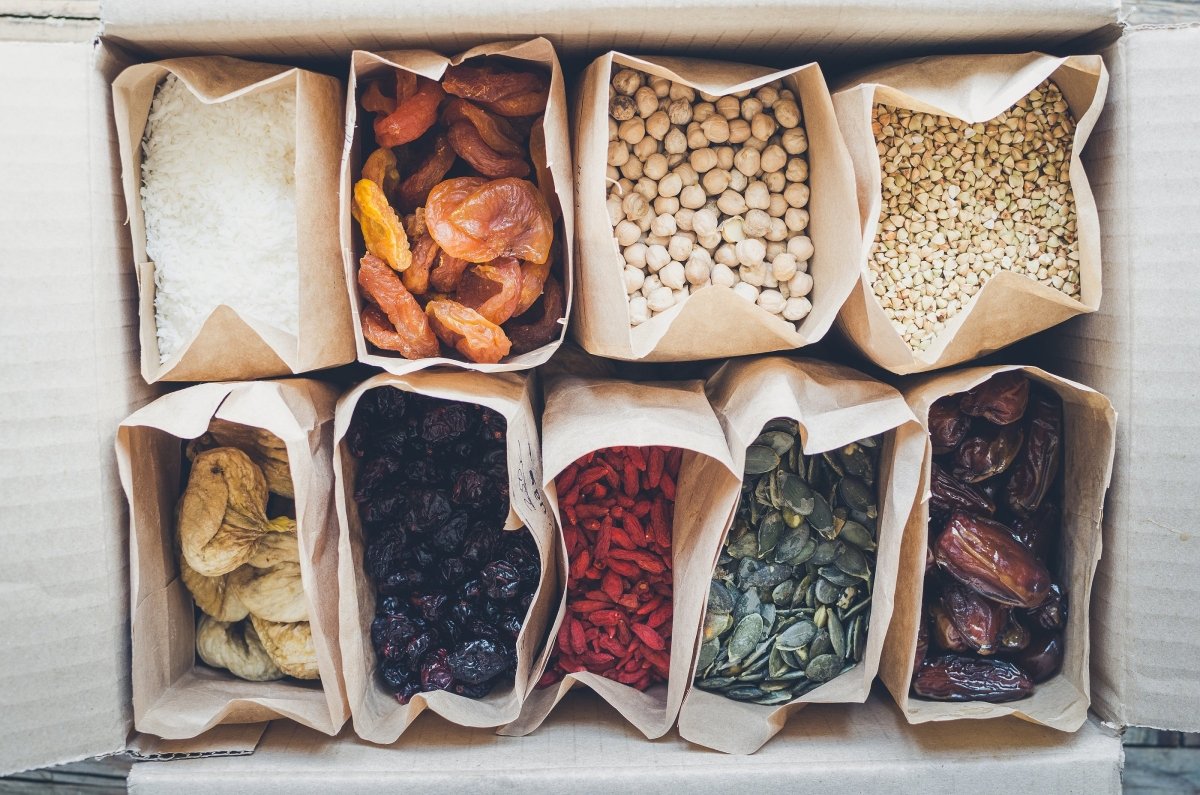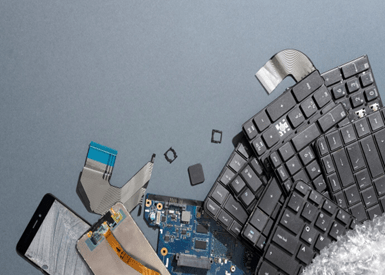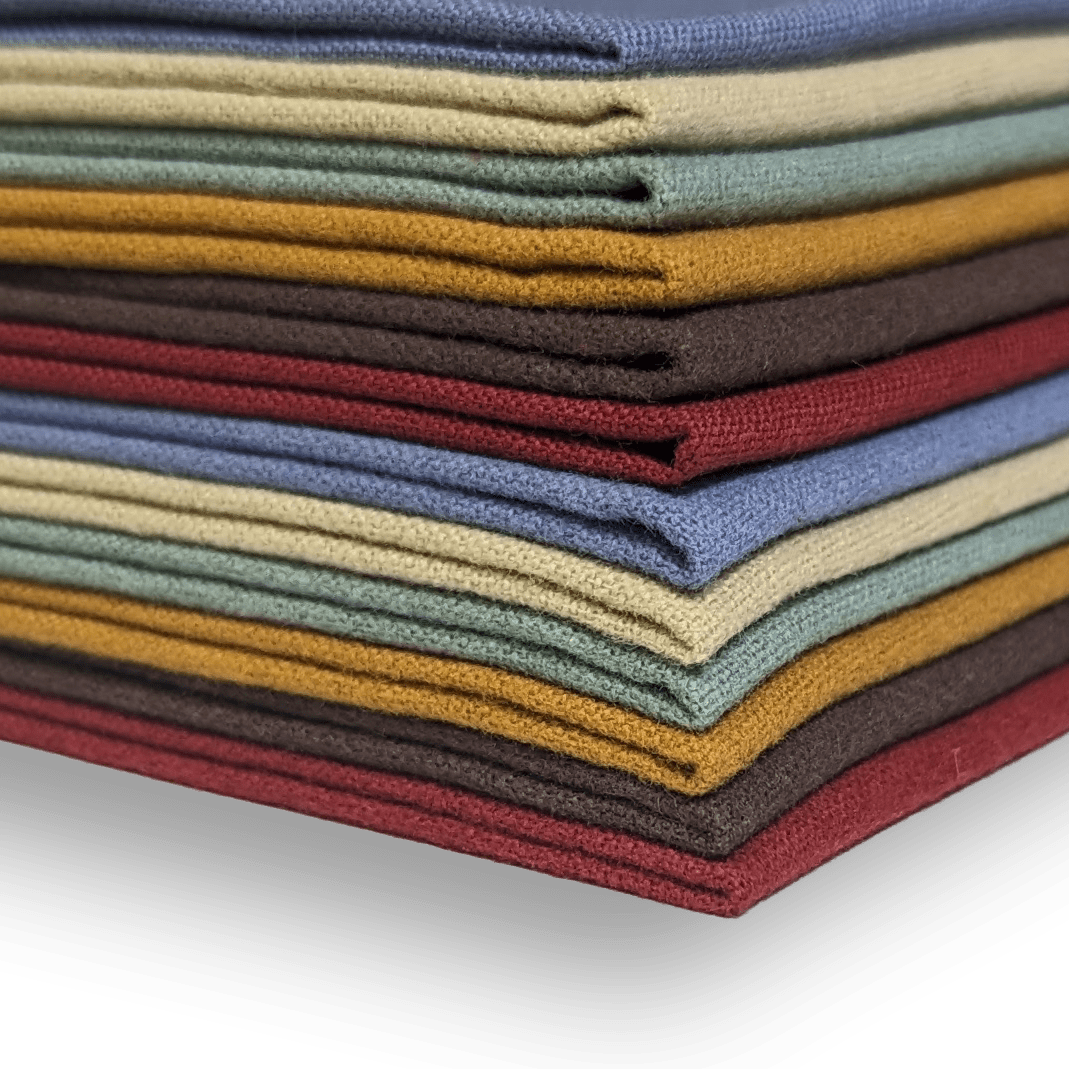Kitchen waste is a serious problem we need to address.
Most kitchens are a major source of food waste, single-use plastics, and other wasteful patterns. Research shows that single-use plastics account for 40 percent of the plastic produced every year.
Imagine if we could reduce plastic waste (especially single-use plastic) in the kitchen of every home, how big of a difference it would make! Sustainable kitchen swaps, zero-waste products, and eco-friendly choices are the solutions that will set us on a path to a cleaner future.
Create a Backyard Compost to Combat Kitchen Food Waste
Composts require natural resources to thrive – so why not put your food waste to use? A backyard compost pile is a brilliant solution for creating less waste in your kitchen.
Composts actually benefit from your trash, unlike landfills and water sources that end up with most of our pollution. Much of our food waste in the kitchen is actually reusable, yet we throw away food by the buckets.
The EPA estimated 35.3 million tons of wasted food went to landfills in 2018 alone.
It should be noted, though – just because food waste is capable of decomposing doesn’t mean it will in any environment. Food waste needs the proper conditions to break down healthily.
If it goes to the landfill, it doesn’t mean the food will decompose. It only adds to greenhouse gases in the atmosphere. Food waste contributes to an astonishing 11% of the world’s greenhouse gas emissions.
Composting is an easy solution for curbing significant greenhouse gas. Take a minute to consider how you might be able to put your kitchen food waste to better use.
If you don’t have the time or resources to maintain a backyard compost, consider becoming part of a composting service or investing in a small countertop composter. Composting services make composting easy – they pick up food scraps and return them to you as compost. And if you’re not into gardening and don’t need the compost, don’t worry. They’ll gladly keep it.
Additionally, composting food waste means you’re creating less trash that has to be transported to the landfill or the dump – saving time and energy.

Store Foods in the Right Conditions to Reduce Waste in the Kitchen
Taking the time to understand how various produce and food stay fresh will save you a lot of heartache over wasted food. You can avoid food spoiling before you get the chance to eat (or cook) it!
- Keep avocados in cool, dark spots to ripen, and then pop in the fridge to preserve until you eat.
- Store tomatoes in a cool open space until they’re ripe, and only put them in the fridge to preserve the ripeness until eating.
- Use crisper drawers for your vegetables that need certain humidity levels.
- Use food-saver bags for produce that might go bad quickly otherwise.
- Keep older foods towards the front of shelves to ensure you don’t forget about them and consume them before they are past due.
Learn to Meal Prep to Practice Zero-Waste in the Kitchen
Meal prep will do a lot more than just prevent food waste! Meal prep helps you stay focused at the grocery store and not over shop, reducing the amount of fresh food you have on hand.
There are so many benefits to meal prepping:
- Learn how to get creative with food
- Buy more fresh and bulk food, resulting in less packaging
- Practice mindfulness while cutting and preparing food methodically
- Spend less time in the kitchen each night and more time with your family!
Plus, there are plenty of resources and tutorials on meal prep. Meal prepping is a major life hack.

Pack Your Lunch to Reduce Food Waste and Save Money
Many of us eat out a lot for lunch during the workweek – maybe even every day. But just think how much more of your food at home you’d eat if you made an effort to bring your lunch?
You’ll use up all those fresh veggies that are bound to go to waste sitting around your kitchen.
Also, packing lunch saves you a lot of money each year and encourages you to eat less processed foods. Give adult lunchboxes a chance – they’ve come a long way since the kid versions you grew up with! Be sure to invest in reusable utensils, too, while you’re at it.
Don’t Purchase Plastic Containers – Choose Glass or Silicone to Reduce Plastic Waste in the Kitchen
We’ve got a plastic container problem, especially in the U.S.
While it’s not helpful to throw away the plastic containers you already have, there’s still something you can do! Moving forward, commit to only purchasing glass, silicone, or other durable, reusable storage containers for the kitchen.
The more we support and purchase plastic, the more it gets produced.
A good rule of thumb before purchasing is to think about two things:
- Can this item become a lifetime item that will last for years to come?
- Will this item be recyclable or reusable at the end of its life?
Glass and silicone are your best options for food storage. They’re clear to see what’s inside, chemical-free, lead-free, and safe for food consumption. They’re generally very durable and can go in the dishwasher or oven.
Can your plastic containers do that?
I didn’t think so…
No more melting plastic containers in the microwave or pulling out an um, deformed plastic container from the dishwasher that ran too hot.
One of our favorite reusable kitchen storage containers is the silicone zip bags. This handy bag has all the functions of a convenient zip-lock, with endless uses! Some are even oven-safe up to certain temperatures – now that’s impressive.

Swap to Zero-Waste Soap Alternatives
Soap is one of those pesky, often overlooked sources of waste in the kitchen. It’s easy to ignore, but over your lifetime, it adds up! Making the switch to refillable options or a zero-waste soap will go a long way in making an impact on your environmental footprint.
Try soap bars for hands or a refillable container (or reuse what you already have). Plenty of soap refill options are plastic-free and use glass or aluminum containers. Zero-waste products help you reduce plastic waste efficiently in the kitchen without sacrificing convenience.
Try swapping your dish soap for a zero-waste dish soap block.
It might seem like it would be an inconvenience, but you’ll find that it's actually beneficial. No handles to push, no bottles to squeeze, just rub the bristles of your brush against the dish soap block and get to scrubbing!
Swap to Zero-Waste Cleaning Supplies Instead of Plastic or Single-Use Products
Like soaps, cleaning supplies are another hidden source of waste, especially in the kitchen. How many times a week do you wipe down your counters, mop the floor, etc.?
(Okay, maybe it’s every other week or month – no judgment).
Swap to unpaper towels to eliminate single-use paper towels that are harmful to the environment. Make your own cleaning formulas and repurpose bottles you already own.
Use and support brands that make zero-waste kitchen swaps easy. There are plenty of people who have poured their heart and soul into creating zero-waste products for the kitchen that are sustainable, affordable, and work just as well as wasteful alternatives.
Choose bamboo or biodegradable materials for all your brushes and sponges in the kitchen.
Did you know that most cleaning products are produced with virgin plastic?
Researchers estimate that more than 8.3 billion tonnes of plastic have been produced since the early 1950s. About 60% of that plastic has ended up in either a landfill or the natural environment.
Let’s put a stop to plastic waste in the kitchen!
Invest in Reusable Straws and Drinkware Instead of Plastics and Disposables
Recently, straws have gained a lot of popularity in mainstream media for their pollution and wildlife harm. And it’s great to see these crucial issues brought to light. By making the switch to reusable straws and drinkware you can easily reduce your waste in the kitchen.
Did you know that plastic straws make up about 99% of the $3 billion global drinking-straw market?
If you’re a straw drinker, investing in metal straws is an easy sustainable swap.
Many reusable straws are easy to travel with or come with a case. The same goes for reusable drinkware. We’ve come a long way with sustainable drinkware. Be prepared whenever and wherever thirst hits you!
Buy Recycled or Reusable Zero-Waste Kitchen Products Whenever You Can
One of the most straightforward ways to reduce waste in your kitchen is to focus on buying recycled, repurposed, or reusable zero-waste kitchen products!
This includes things like:
- Napkins
- Paper towels
- Aluminum foil
- Parchment paper
- Beeswax wraps
- Silicone cupcake pods
- Silicone stretchy tops for containers
- Reusable glasses and water bottles
- Reusable/Recyclable coffee or tea filters
The list goes on, and this is just a starting point.
Living a zero-waste lifestyle is a choice, and it’s one you can be proud of. When you choose sustainable and zero-waste alternatives, you’re setting yourself (and generations to come) up with healthy choices that respect the environment.
When we learn to respect the environment with our choices, we find healing as the earth heals too. Make the first jump today by finding one (or 10!) zero-waste swaps for your kitchen. It’s never too late to get started.
Let’s get to work healing mother earth – she needs us!




Comment
Great messaging; wish the planet could get and do all suggestions. My bane is plastic bags for frozen fruit..beingsingle prohibits bulk buying especially organic. I really buy juice and milk in cartons, not plastic. Stores make it difficult.